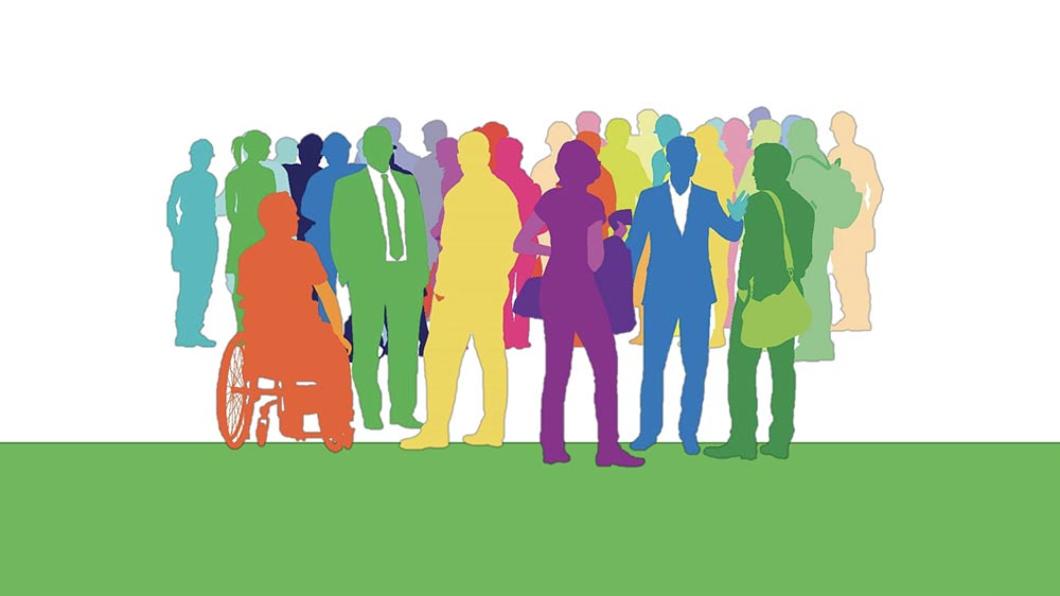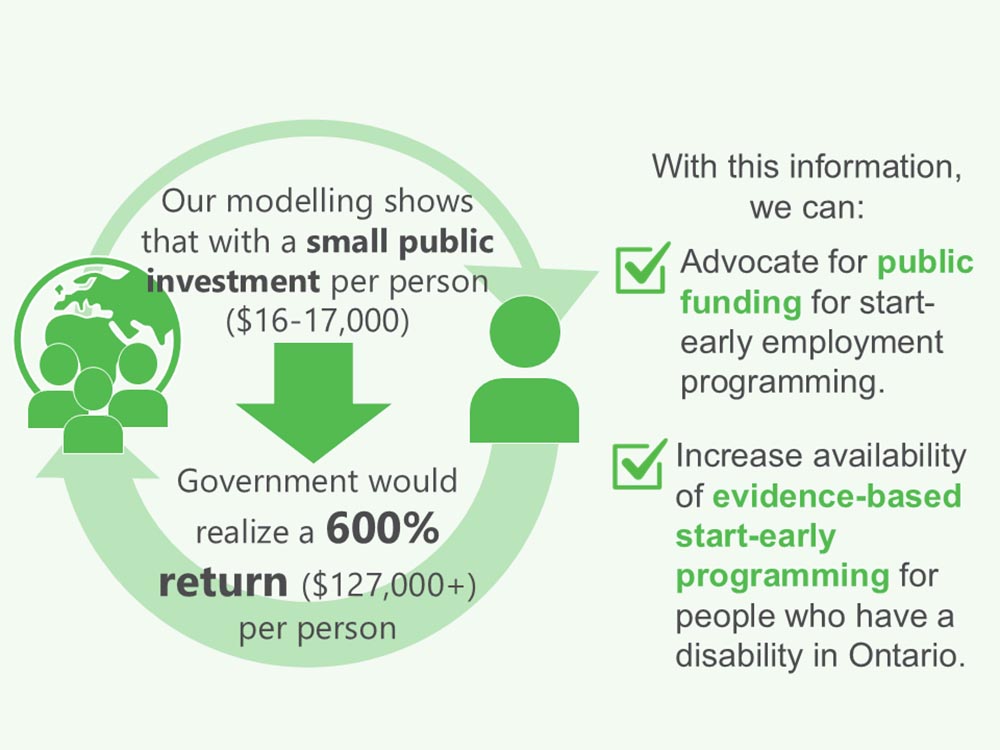
A new report highlights the benefits of early employment programs for youth with disabilities
Thousands of talented youth with disabilities enter the workforce in Canada each year. Workplaces that include people with disabilities boast higher profits, better productivity and increased employee retention. At Holland Bloorview, we believe that everyone who wants to work deserves to. Economic independence, growth and fulfillment are for everybody. Beyond the invaluable experience for youth and young adults, as well as the workplace, we know there is an economic impact.
That is why this National Disability Employment Awareness Month, (NDEAM), we at Holland Bloorview partnered with the Ontario Disability Employment Network (ODEN) to share compelling new data from a jointly co-authored report with Chronicle Analytics that reinforces the case for early investment in employment programs for youth with disabilities.
The organizations created a theoretical cost-benefit model to show lifetime government return on investment in order to promote public funding of stable, equitable “start-early” programs. The modelling shows that with a small public investment of $16,000 - $17,000 per young person, the government could realize an over 600 per cent return on investment, or $127,000 over that person’s lifetime.
With these findings, we can anticipate:
- Significant return on investment for government: Assuming a 100-person cohort, an annual public investment of $1,600,000 would yield lifetime return of $8,913,694 (high school graduates who transition directly to employment following participation in an appropriate program). An annual public investment of $1,675,200 would yield lifetime return of $10,025,047 per cohort of individuals who get work experience in high school and also obtain post-secondary education credentials following participation in an appropriate, targeted program.
- Enhanced disability inclusion: Early employment programs provide more opportunities to youth with disabilities, instilling the skills and knowledge required to become attached to the workforce and financially independent.
- Improved overall well-being: Early employment programs can positively impact mental health, self-esteem, and overall well-being.

Sam Andrade is a former client at Holland Bloorview, who connected with the hospital’s employment programs—Youth@work and Ready to Work— when he was in high school. Andrade was born with cerebral palsy and explains that he gets tired easily when standing and walking long distances. As a teen, he questioned his capacity to work in summer employment roles that his peers were taking on. “How much walking, standing, or physical activity is required?” “What happens if I fall on the job?” “How can I discuss my accommodations and still be a viable potential candidate?” Participation in Holland Bloorview’s employment programs gave him the confidence he needed to find suitable jobs and talk to his employers about simple accommodation strategies. He received summer a scholarship and internship at a leading financial institution. Today he works full-time there as a financial analyst.

Early employment programs played a crucial role in Sam’s life. When asked about where he envisioned himself if he hadn’t enrolled in a start-early program, this is what he had to say:
“If I didn't have the program, I think I would have really struggled. Even if I did get a part- time job, it would have taken me much longer to build that level of confidence, my abilities, being comfortable talking about my disability and accommodations. The time horizon would have been much longer. And the overall success, or longevity, may have been impacted as well.” Commenting on the cost-benefit report, he adds, “I know equity, diversity and inclusion (EDI) are talked about a lot but there are fewer conversations about the cost-benefit analysis and the long-term financial outlook when you include people with disabilities in the workplace. This report reinforces that involving kids with disabilities in the workplace early pays dividends for everyone.”
“Despite the proven effectiveness of start-early employment programs for youth with disabilities, there continues to be no consistent public funding to support these programs”, says Carolyn McDougall, manager of employment pathways at Holland Bloorview. She coordinates employment programming for 60+ youth with disabilities annually, helping them transition into the workplace seamlessly. “It is important to share impact stories and data to highlight the issues facing youth with disabilities, remove barriers and advocate for change,” she says.
The business case is clear: Investing in early employment programs for youth with disabilities results in long-term societal-level benefits. For individuals with disabilities, early employment opportunities increase inclusion, financial stability and wellbeing.